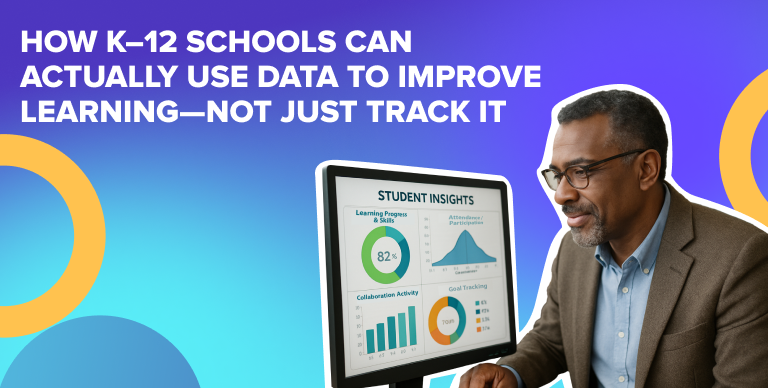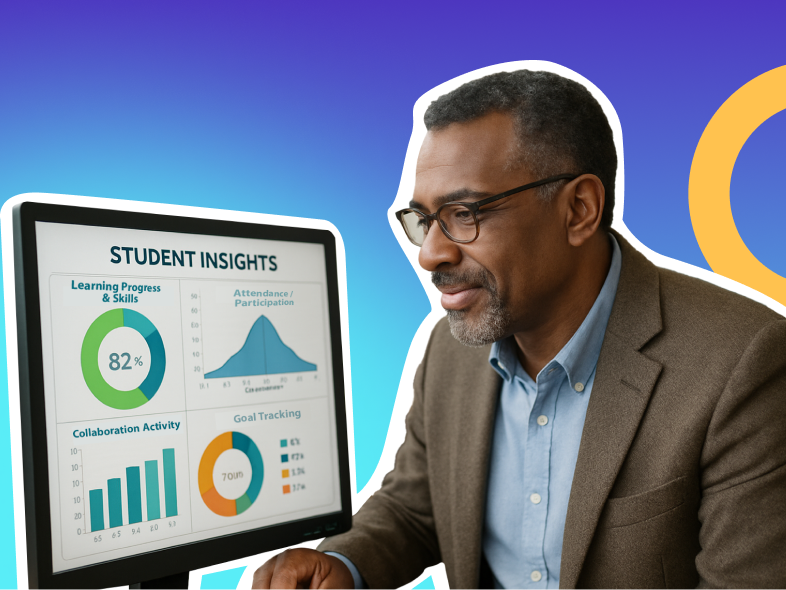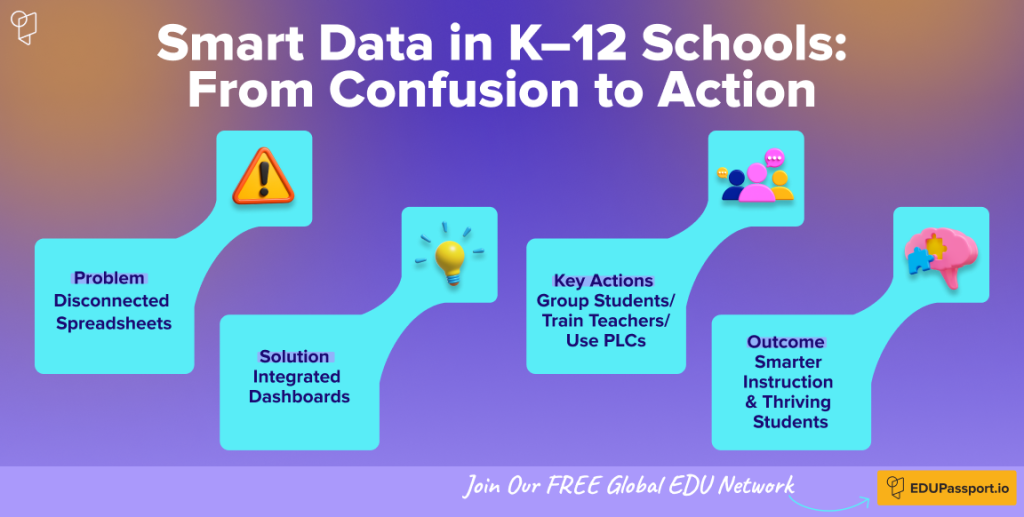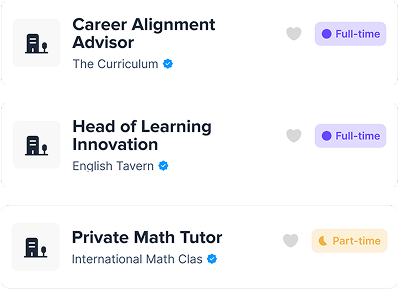Data isn’t just numbers on a spreadsheet—it’s insight that helps teachers see which students need extra support, which lessons are hitting the mark, and where early interventions can make the biggest difference. For K–12 educators, turning data into meaningful action is no longer optional—it’s essential.
Why Data Matters in K–12 Schools
Some schools struggle with disconnected information, scattered reports, and slow feedback loops. The transformation comes when data is integrated, clear, and actionable: teachers can quickly identify trends, principals can allocate resources efficiently, and Professional Learning Communities can act on insights together.
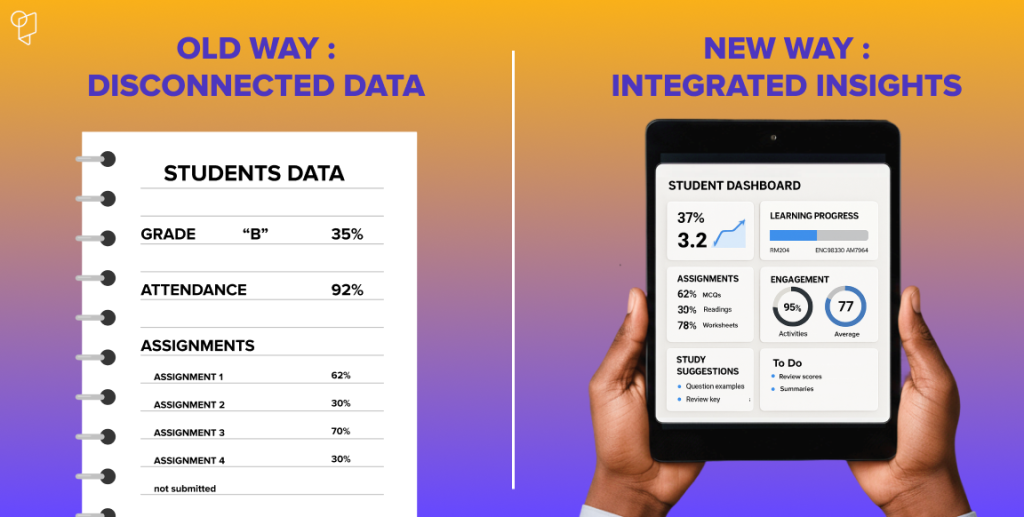
The Biggest Challenges (and Smart Fixes)
1. Not Enough Time or Tools
One of the biggest hurdles is time. Teachers aren’t data scientists—and they shouldn’t have to be. With the right systems, manual work is minimized, trends surface instantly, and teachers can focus on instruction rather than spreadsheets.
2. Data Without Context
Numbers alone don’t tell the story either; combining quantitative data with qualitative insights—like classroom behavior reports and teacher observations—gives a full picture.
3. Lack of Data Culture
Another challenge is culture. If staff don’t trust or understand the data, it goes unused. Schools that cultivate a positive, learning-focused data culture see far higher adoption and impact.
What Real Data-Driven Schools Do Differently
Data-driven schools take several practical steps to succeed:
- Dynamically group students based on up-to-date academic and emotional insights
- Empower teachers with dashboards that are easy to read and act on
- Use PLCs to interpret trends collaboratively and adjust instruction quickly
- Provide staff training so everyone can confidently use and respond to data
As Becky Mathison (Assistant Superintendent, Winnetka Public Schools) puts it:
“We must support teachers with both job-embedded coaching and intuitive tools if we expect data to drive instruction—not just sit in a file.”
Data Isn’t One-and-Done
The best data cultures don’t wait for the end of the year. Monitoring, reflecting, and adapting continuously keeps classrooms, grade teams, and districts aligned and responsive to student needs.
Final Thought
When implemented well, integrated data changes everything. From scattered spreadsheets to actionable insights, schools can achieve smarter instruction, stronger growth, and a culture that prioritizes learning.
EDU Passport helps education leaders unlock the full potential of their data with tools, insights, and practical guidance, so every school can be smarter, not busier.




